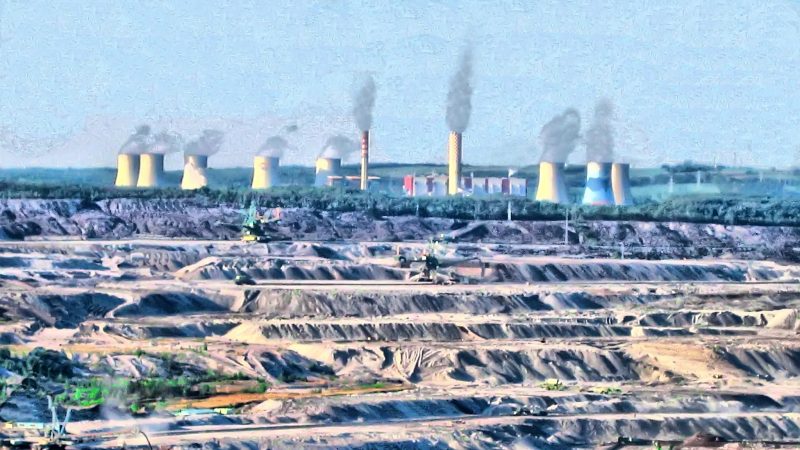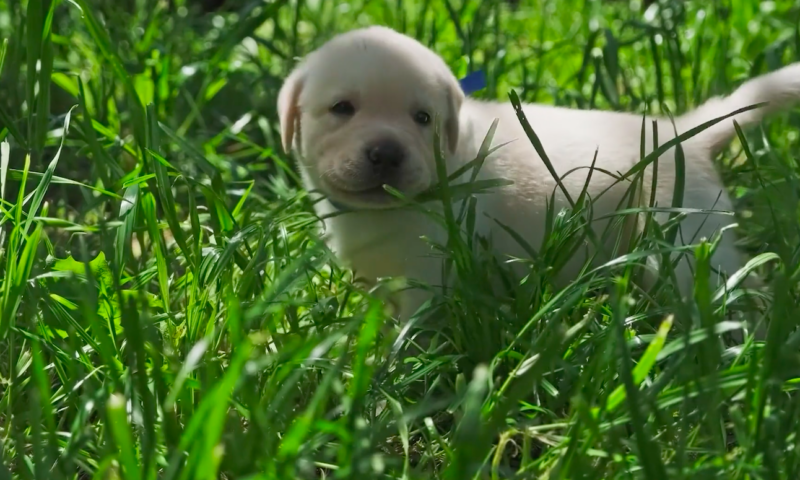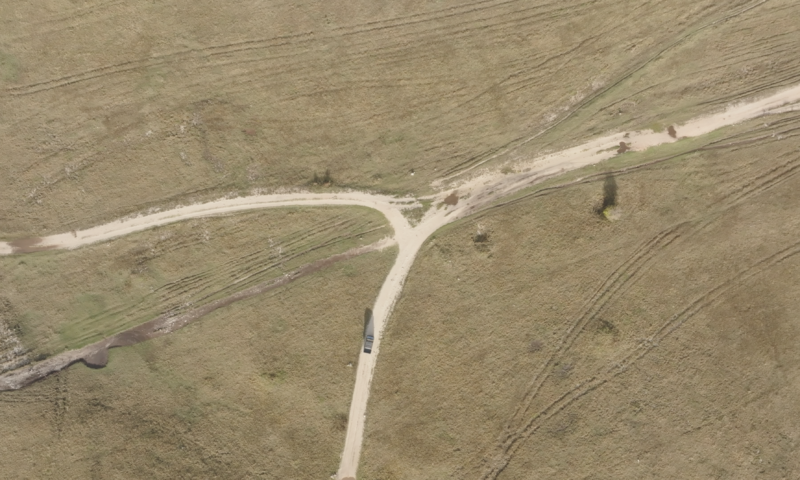This article was originally published on Euractiv.pl.
Turów power plant produces about 7% of Poland’s energy and employs 3.5 thousand people. Its operations influence the entire region, not only the town of Bogatynia in south-western Poland, where the mine and the power plant is located, but also the surrounding towns and villages.
Between 2021 and 2022, the Turów mine complex, owned by the Polish Energy Group (PGE), become a bone of contention between Prague and Warsaw, with the Czech government demanding its immediate closure for its alleged negative impact on groundwater in villages on the Czech side of the border. Poland refused to comply, even after the Court of Justice of the European Union intervened and ordered Poland to halt mining.
At the end of the day, the two countries managed to reache an agreement on the mine. Still, Turów’s future remains in question amid inevitable energy transition.
Polish „Dark”
EURACTIV.pl’s Bartosz Sieniawski and EURACTIV.cz’s Barbora Pištorová travelled to Bogatynia and its surroundings in early August. They visited the town in the summer season, which was easy to forget amid the ever-spitting smoke from the chimneys of the PGE Turów power plant.
„Chimneys” (Pol. „kominy”) is how Bogatynia residents call the state-owned power plant, the most distinctive feature of the landscape around Bogatynia. That is where the heart of the city beats, and where the work never stops.
The power plant itself makes Bogatynia look a bit like a Polish version of Winden, the place of action of the TV series „Dark.” Winden’s landscape is dominated by the sight of a nuclear power plant.
Bogatynia is located in the so-called „Bogatynia sack,” an unusual arrangement of borders between Poland, Czech Republic and Germany; Poland’s border abruptly extends south, encompassing territory rich in coal.
Bogatynia is a small industrial town with a well-kept and revitalised representative street, Żytawska Avenue and German-style houses. Nearby runs the small Miedzianka River. In 2010, as a result of heavy rains, it severely overflowed, causing flooding and extensive damage to Bogatynia. The town’s residents recall the flood as traumatic.
In the rather quite town centre there is a library, a park, a community centre, a city hall, a renovated museum building that once served as a train station, supermarkets and a couple of business premises. The street names refer to historic events and figures, and hot water pipes run alongside the roads, supplied by the PGE power plant.
Apart from delivering energy, PGE also sponsors cultural and sport events in the town. Advertisement posters hanging all around promote the celebrations of Polish Armed Forces Day, co-organised by PGE. The company is also an ambassador of the Bogatynia community centre.
Outside Bogatynia, a high embankment is under construction along the road running between the mine site and the Czech border, aimed at separating the mine from the Czech villages, the resident of which complain about its harmful influence for the local environment. On the embarkment the several thousand trees is to be planted that will form an over a kilometre-long lane.
The embarkment’s construction is a result of last year’s agreement between Poland and Czechia, which also includes the construction of an underground dam to prevent groundwater from escaping from the Czech side of the border into the mine workings. According to data currently available, the dam is not working properly: the groundwater level continues to rise on the Polish side of the border, and fall on the Czech side.
Bogatynia has recently become a key place for Polish election campaign, with the conservative ruling Law and Justice (PiS) party having its rally there. The last year’s dispute between Poland and the Czech Republic over the operation of the Turów reached the EU level, as Prague sued Warsaw to the EU Court of Justice.
The residents of Bogatynia make the impression of being united as a community, which certainly been additionally influenced by the recent international dispute. Although they are not too eager to talk to the media, they are friendly toward visitors and people interested in taking a job at the mine or moving to the town.
The relations with Czechs have been strained in the past year, with a Bogatynia bar, according to customer’s reviews at Google Maps, refusing to serve Czechs. Still, Bogatynia maintains relations with nearby Czech and German regions, and the people of Bogatynia speak highly of those regions’ residents as their cordial neighbours.
If they complain about anything now, it is that Czechs often come shopping to Bogatynia, where food is much cheaper, and often buy out a significant part of the produce.
The borders also mark the differences in lanscape, which is dominated by chimneys of lignite power plant on the Polish side of the border, and windmills and electricity generating turbines in on the Czech and German sides.
The residents told EURACTIV that they were not afraid of the future. They believed the mine and the power plant, which provide jobs for most Bogatynia residents, would not close in the nearest time.
Environmental impact
„The studies from between 2016-2021 and the assessment of water status show that the basic parameters (…) did not exceed the levels appropriate for Class I and Class II with the analysis of the 2022 results confirming the continuation of this trend,” EURACTIV.pl learnt from the Polish Ministry of Climate and Environment.
There are 5 measuring points of deep-water testing on the Turów mine site. The water quality measurements, carried out in 2022, showed that water was of satisfactory quality in one of the intakes and unsatisfactory in four. The water contamination had a natural source, with increased concentrations of iron, manganese and total organic carbon detected in the water, according to the ministry.
Tests by government agencies and PGE also showed no excessive levels of air pollution that would threaten human life and plants. Also the noise levels during days and nights did not exceed the norm and no radioactive contamination was detected of the soil in Bogatynia or the vicinity of the mine, the ministry said.
According to the PGE’s website, the power plant produced 4,200 tons of sulphur oxide, 6,700 tons of nitrogen oxide and 11 million tons of carbon dioxide in 2022. The company did not respond for EURACTIV’s request for contact.
Residents’ opinions
EURACTIV did not manage to reach any labour union or representatives of the local town hall. The vacation season was not the only reason. The heads of the Turów trade unions refused to talk to journalists, providing no reason for their decision, while the mayor’s office, although it remained in contact with us, ultimately ended up quiet.
The head of one of the unions operating at Turów told EURACTIV that the unions were prohibited to talk about the mine and the power plant with the media.
EURACTIV asked the town’s residents about the future of the region amid the energy transition, which would involve the closure of Poland’s coal-fired power plants.
With many Bogatynia residents working at the Turów complex, fears about their future are not unfounded. Those who agreed to talk said they were trying not to think about the mine’s closure. Most of them believe that the facility will remain open for years to come.
A consultant who held a meeting on the advantages of domestic renewable energy at the municipal library refused to talk to EURACTIV.
Asked about the future of Turów and thus Bogatynia, the librarian expressed hope that the mine would continue to operate. „We try to remain optimist,” she said.
For the question about the cooperation with Czech libraries, the librarian said that her facility used to organise joint exhibitions with their Czech counterparts in the last years.
„During the pandemic, our cooperation froze and was not renewed. But we are open to it if only the Czechs declared their will to resume it,” she stressed.
From an employee of the local community centre, EURACTIV learnt a lot about the rich cultural life in Bogatynia by the institution, also involving international cooperation.
„We organise periodic events, such as a review of the artworks by disabled people, singing competitions for older people, as well as joint international festivals,” said the employee.
Asked about the cooperation with PGE, the logo of which was featured on many placards advertising various cultural events in the town, she smiled wide as if she had expected the question. „We cooperate with PGE. In fact, the company is our cultural ambassador, for which we are thankful,” she said.
„Let’s not deceive ourselves, culture is not cheap. Thanks to our cooperation with PGE, we can afford to bring many specific cultural proposals to the people of our region at a very high level,” she added proudly.
Easy employment
A middle-aged man, resting after his daily work, reiterated how vital the Turów mine and power plant are to the people of Bogatynia. He himself once worked at the power plant, and has been retired for three years now. Now his son works there. Those employed by PGE stay in Bogatynia, while others often decide to leave the city, he said.
The work of mines and power plants drives local industry and is a direct or indirect source of employment for about 60-70 thousand people, the man told EURACTIV, based on his own experience. The facilities employ not only miners, but also logistics workers, drivers, office workers, factory workers, engineers, cleaners, as well as warehouse workers.
Work „on chimneys” is very profitable, with very high wages, generous social facilities, and attractive, low-cost vacations for employees in various Polish resorts, the power engineer admitted.
He believes that the mine and power plant would not close and certainly not in the coming decades. Everything depends on the upcoming parliamentary elections, though, he said. His statement suggested that he is a supporter of the current government, which opposed the ruling to shut down the mine.
He added he had heard on the radio that after the potential closure of the mine, a large automobile manufacturing plant was to be built on its territory, which is expected to employ around 20,000 people, providing an alternative employment for the energy complex employees. It is difficult to find this piece of information online, though.
From the citizens sitting in a small bar in a cramped room, with decor reminiscent of the 1990s, EURACTIV learnt that not all of them liked the fact the ruling camp made their small municipality its political bastion. „I have never seen so much police as when PiS had its rally here,” said one woman.
The barman criticised the Polish government and its lack of political skills responsible for last year’s dispute with Czechs. „It’s crucial to be diplomatic,” she said, smoking a cigarette.
Most residents of Bogatynia have rather positve, or at least neutral attitude toward Czechs, who live so close to them that they do not even talk of them as of foreigners, but rather residents of the neighbouring town.
It is not difficult to find employment in the Turów complex, they argued, suggesting that they were not worried about the possible closure of the PGE complex in the near future. „Should it close, everyone will leave to work abroad,” they said.
EURACTIV also heard a piece of advice on how Turów employees can live cost-effectively. It is enough to live on the Czech side of the border, in the town of Frýdlant, commute to work in Turów by bus or car, and visit Poland once a week for some bargain shopping.
Bogatynia residents also spoke about immigrants living in the city. A group of about thirty Azerbaijanis work at one of the plants, but they are difficult to communicate with due to cultural and language differences. One woman at the bar said she „would not tolerate” foreign workmates.
She was milder about the Ukrainians employed in Turów. „They are decent guys,” she said, insisting that she used to have a positive attitude towards Ukrainian citizens working in Turów even before the war broke out.
A trip abroad
In Czechia, Barbora Pištorová talked to representatives of local authorities, activist groups and local residents who complained about groundwater issues. Just as Poles did, also Czechs expressed their doubt in their government’s political and governance skills.
While the Czech government portrayed the settlement of the dispute over the mine as a victory and praised the effectiveness of the underground dam, the residents of nearby border villages reported that the current procedure has done them no good.
They have been promised access to information about mining and its impact on the environment. Also, they have also been offered money for „dispute resolution and the construction of water supply systems in affected communities.”
„The water supply is constantly decreasing, with less and less water every year. In fact, nobody wants to settle down in the area, because they fear running out of water. We live in a constant uncertainty,” commented Kamil Kronus from the border town of Václavice, whose property is located approximately 4 kilometres away from the Turów mine site.
He stressed that for residents of border villages it is often not possible to move out of a troublesome region after they have invested quite a fortune in their properties and homes.
There are also other aspects of the mine’s operations, other than water, which Czechs find problematic. „The nearby landscape is very damaged. You can just climb the smallest hill to see a thirty-kilometre-long pit. This has significant consequences – for instance, on the real estate value,” explained Milan Starec from the residents’ association of the closest Czech village to the mine, Uhelna, which is probably the most affected by Turów mine’s operation
The residents are also questioning the construction of a water supply system, for which the money allocated under the agreement with Warsaw will not suffice.
“Of course, it is important to build these waterworks, but on the other hand, it is the responsibility of the Liberec region, which has been unable to use up-to-date data in its calculations,” said Starec.
“We were granted compensation calculated on the basis of data from 2015. This is precisely what we criticised from the very beginning. Regional representatives allocated too little money and considered the problem solved, while they were not even able to determine them at the adequate rate,” he added.
Yet another problem is the noise. „It is much worse during the day, when you go outside and want to hear birds or just a rooster crowing, but instead you hear the noise of excavators,” Starec argued.
Czech border residents are also disturbed at night by the light from Bogatynia’s greenhouses, shining over the city.
Dispute over the dam
The study on the mine’s environmental impact mainly involves investigating whether groundwater infiltrates through the underground dam from the Czech side to the mine’s side, without including a research on whether water flows into the Turów workings elsewhere underground.
„The groundwater protection agreement applies to the wells located along the barrier to protect water on the Czech side. Still, it was built with the original intention of protecting the mine from incoming water, not as a means of protecting water on the Czech side,” said Anna Kšírová, medician, representative of the city of Liberec and founder of the Parents for the Liberec Climate initiative.
Measurements of groundwater heights on the Czech side are not accurate, for the data are collected only in the vicinity of the underground dam, she added
Dominika Pospíšilová from the press department of the Czech Ministry of the Environment and representatives of the Czech Geological Survey have repeatedly responded to the claim that „even a fully functioning underground dam will not protect water on Czech territory to a sufficient degree.”
“It is now impossible to determine when and if the dam presence will also affect the Czech territory. In terms of the Turów mine’s impact on Czech soil, a fatal mistake was made in the 1980s, when Poland overloaded the so-called meridional fault, causing the deep groundwater level to drop by 50 metres by 1991,” Pospíšilová said.
„Groundwater levels have been declining for the past forty years; their rise will be gradual and will manifest itself with a lag in the more remote wells, that is, also in Czech territory. Therefore, levels cannot be expected to rise significantly over one year,” she added.
An agreement with Poland was the only possible solution to the dispute, which was expected to bring substantive results in the near future, according to representatives of the Czech border regions.
“For the first time in the history of coal mining in Turów the dust at the mine is continuously monitored. The noise is measured according to Czech standards, not the Polish, which are less strict, Governor Martin Půta told EURACTIV.
„Ground subsidence is measured as well, another issue that has never been addressed. There are also metering kits installed on buildings to see if some houses are cracking,” he insisted.
However, Dan Ramzer, mayor of the border town of Frýdlant for the right-wing Civic Democratic Party (ECR), believes that the Czech Republic should not negotiate with Poland on its energy security plans.
„With Poland striving for energy independence, this is all the more completely justified,” he explained to EURACTIV.
Still, according to Ramzer, neither Czechia should underestimate the importance of Turów as an employer for Czech residents.
The inevitable decarbonisation
The future of Bogatynia’s residents is not only an issue for Poland. Although the impact on the immediate vicinity of the mine is most evident on the Czech side, the green transition still weighs over Bogatynia and its surroundings.
„If the coal mining there continues, it will only postpone what will eventually happen anyway. In other words, the coal will run out, people will lose their jobs, and Poles will lose resources that are now available and can be used to transform the entire region,” Kširová said.
While the money from the Just Transition Fund is flowing to other regions that have relied heavily on mining in the past or even now, the Zgorzelec district, where Turów is located, will not receive a subsidy, which is due to the planned continuation of coal mining until 2044.
The transition should also embrace the employment and its availability in the mining regions, as well as in the energy industry itself and resource availability, which should happen before 2030.
“There was a great opportunity for cross-border cooperation between the Czech Republic, Germany and Poland, which could have transformed the entire region, strengthening the three countries’ ties. (…) But instead we have maintained an unsatisfactory state and sold out our German and Polish environment for the benefit of the political interests of the current ruling parties in the Czech Republic and Poland,” the activist said.
This is echoed by Václav Židek (Pirates, Greens/EFA), Liberec councillor for environment and agriculture.
“The problem concerns not only Bogatynia, but also German Zittau and Frýdlant, and Gródek over the Nysa river. (…) When Poland fails to cope with the transition, all social problems and high unemployment will automatically spill over to us and to Germany,” he said.
Půta reminded that the issue of mines and energy transition is not a short-term problem. According to him, the prospects for the necessary steps to be taken run many years ahead, just as the history of mining in the border region goes back many decades.
“Coal has been mined there for 80 years, and the people who moved there in recent years were well aware they lived in an area where the mine and power plant are located,” he stressed.
Thus, the situation so far remains stagnant, despite some signs of progress. The water shortage on the Czech side continuous, the mine continues operate, giving employment to thousands of people, and the „chimneys” continue to pollute the air.
Bogatynia and its entire border region is known for its beautiful landscape, with hills and forests. And it is surprising to find a certain kind of tension and problems under the cloak of apparent tranquillity.
Several kilometres west of the city is a tri-junction of borders. In a quiet field, by a charming river, in the tall grass, hides the place where the borders of Poland, Germany and the Czech Republic meet. Someone familiar with the history of the Turów dispute may deeply envy this place for the peace and quiet that emanates from the tri-junction.





